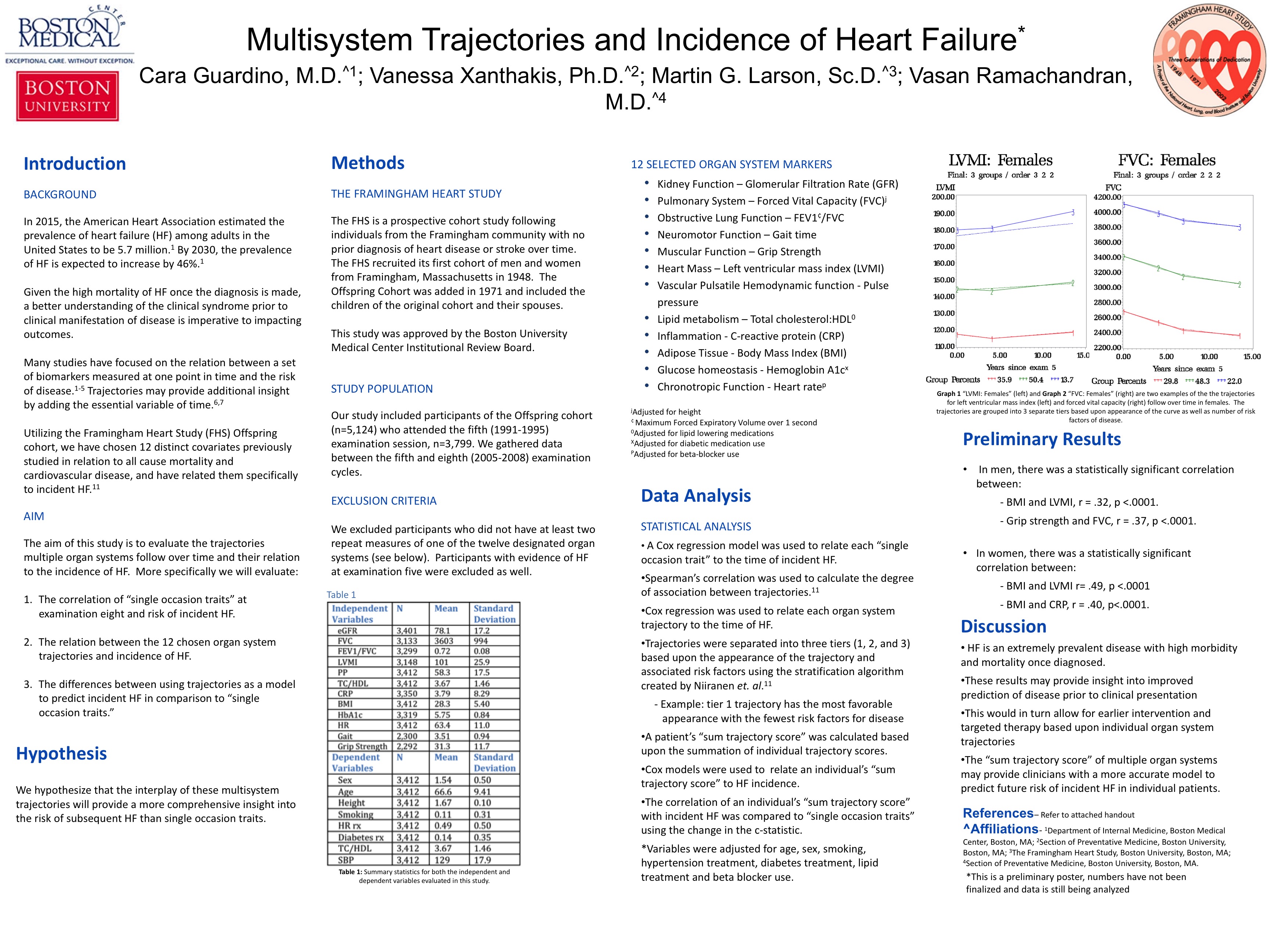Multisystem Trajectories and Incidence of Heart Failure

Cara Guardino, MD
Abstract
Background: The prevalence of heart failure (HF) continues to increase with time.(1) The aging population is likely a major contributor to the increase in prevalence of HF.(2) The trajectories of multiple organ systems over time in relation to the incidence of HF has not previously been studied.
Aim: We will utilize trajectories to evaluate the relation between multi-organ system decline and incidence of HF. These will be compared to the relation of “single occasion traits” with incident HF.
Methods: Trajectories of 12 surrogate markers for organ system function were related to new onset HF using a Cox regression model. Participants are from the Offspring cohort of the Framingham Heart Study, excluding those with known HF or individuals with <2 repeated measures between the fifth (1991-1995) and eighth (2005-2008) examination cycles.
Conclusion:
We hypothesize that the “sum trajectory score” of multiple organ systems will provide clinicians with a more accurate model to predict future risk of incident HF in individual patients than “single occasion traits.” These results may provide insight into improved prediction of disease prior to clinical presentation. This would in turn allow for earlier intervention and targeted therapy.
3 comments
Cara, terrific study! The findings seem to indicate a strategy to dx/rx HF at an earlier stage. I hope you publish your findings! Well-done! Dave
Really happy to see your research effort come to fruition. This was a complex project and I look forward to seeing this published!
nice job on a challenging analysis. I’m curious if intensive data mining of our longitudinal EMR would provide copmlementary data from a “real life” population of outpatients